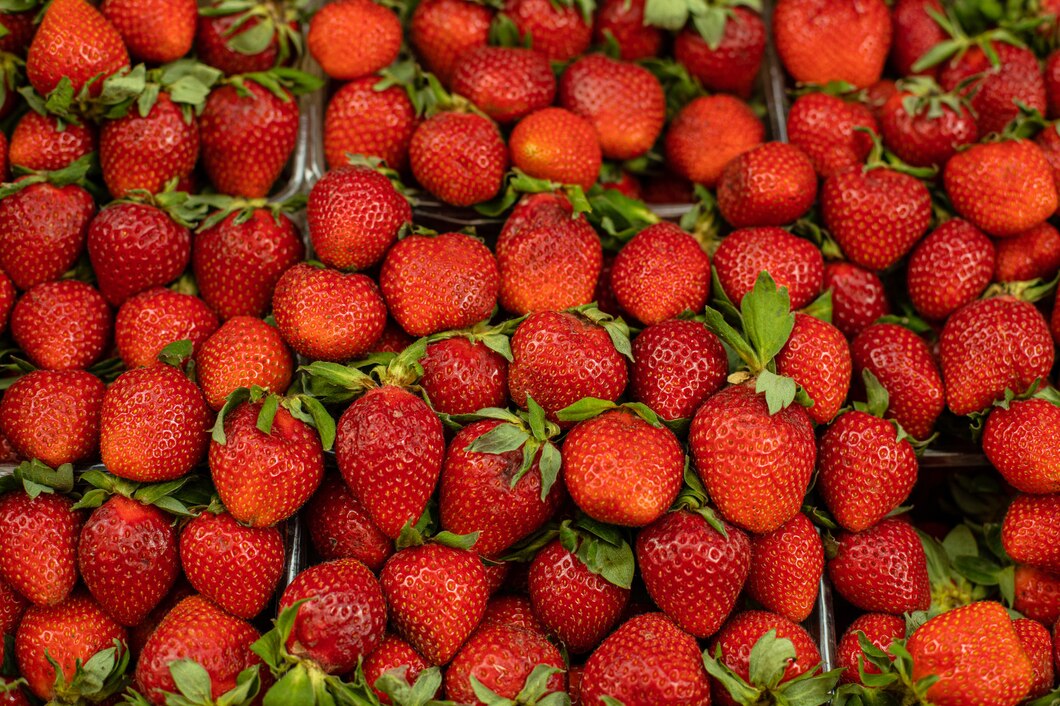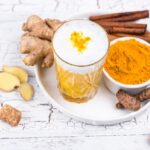The rise of industrial farming and chemical pesticide use has increased awareness of the importance of organic food. While not all non-organic foods are dangerous, certain produce can carry a higher risk of pesticide contamination, chemical residues, or even natural toxins when not grown organically. Consuming these foods without verifying their organic status may expose you to harmful substances that could lead to health issues. Here are 10 foods that can be potentially poisonous if not verified organic:
1. Strawberries
Strawberries are one of the most heavily sprayed fruits with pesticides and chemicals. Non-organic strawberries often test high for residues of harmful substances like methyl bromide, a pesticide linked to developmental and reproductive toxicity. It’s best to opt for organic strawberries to avoid ingesting these toxins.
2. Spinach
Spinach is a nutrient-rich green, but it’s also notorious for absorbing high levels of pesticides when conventionally grown. Synthetic pesticides and fertilizers used in non-organic spinach can contain harmful chemicals like permethrin, a neurotoxin. Organic spinach is a safer option to avoid these health risks.
3. Apples
Non-organic apples are often coated with synthetic waxes and treated with numerous pesticides to enhance their shelf life and appearance. Some pesticides used in conventional apple farming have been linked to endocrine disruption and increased cancer risk. Organic apples are grown without these harmful chemicals.
4. Potatoes
Potatoes are commonly sprayed with fungicides, herbicides, and insecticides that can be absorbed into the flesh of the vegetable. Non-organic potatoes may contain chlorpropham, a pesticide that has been associated with respiratory issues and skin irritation. Choosing organic potatoes ensures that you’re not ingesting these harmful chemicals.
5. Peaches
Peaches have a delicate skin that easily absorbs pesticides, making non-organic varieties particularly prone to contamination. Pesticides used on peaches, such as organophosphates, have been linked to neurotoxicity and developmental problems. Organic peaches are safer as they are free from these harmful residues.
6. Celery
Due to its thin skin and high water content, celery is another vegetable that is highly susceptible to pesticide contamination. Non-organic celery often contains several pesticides, including carcinogenic compounds that pose serious health risks. Organic celery is a healthier alternative to avoid these toxins.
7. Bell Peppers
Non-organic bell peppers are often grown using a variety of pesticides and insecticides that can linger on their thin skin. Some of these chemicals, such as dieldrin, have been linked to cancer and nervous system damage. Eating organic bell peppers reduces the risk of exposure to these harmful substances.
8. Grapes
Grapes, especially imported ones, are often sprayed with chemicals to protect them from pests and diseases during transportation. Non-organic grapes may contain residues of harmful pesticides like carbaryl, which is associated with endocrine disruption. Organic grapes are a safer option for consumption.
9. Tomatoes
Tomatoes are frequently grown with synthetic fertilizers and pesticides that can penetrate their skin and accumulate in the flesh. Non-organic tomatoes may contain chemicals like chlorpyrifos, a pesticide linked to neurological issues and developmental delays. Opting for organic tomatoes ensures fewer toxins in your food.
10. Kale
Kale, a popular superfood, is often treated with insecticides and pesticides when conventionally grown. Non-organic kale may carry traces of synthetic pesticides such as DCPA (dacthal), which is considered a possible human carcinogen. Organic kale is a healthier option to avoid these harmful chemicals.
While non-organic foods may seem more affordable or readily available, certain produce can carry significant health risks if not verified organic. Many of these foods absorb and retain high levels of pesticides, which have been linked to a range of health problems, including cancer, hormonal disruptions, and neurotoxicity. For these 10 foods, choosing organic varieties reduces your exposure to potentially poisonous chemicals and ensures that you’re consuming produce free from harmful residues. Eating organic is a proactive way to protect your health and enjoy food in its purest form.








